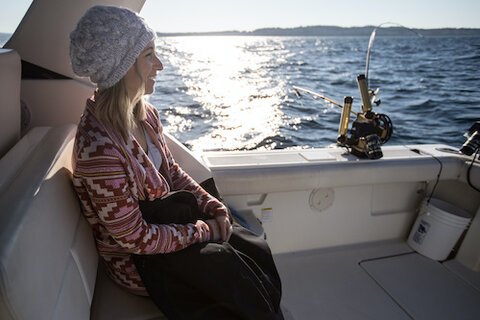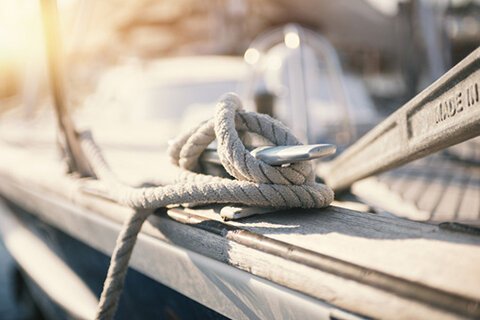When big trouble comes to a boat, it comes fast.
I know this because every time somebody survives big trouble on their boat they tell the TV news reporter the same thing. They say, "It happened so fast we didn’t have time to do anything."
That’s what they say. I say they are half right and half wrong. Of course trouble comes fast, but it does not follow that they didn’t have time to do anything about it.
Before trouble visited, I believe they had time to learn how to keep some trouble (not all) away. Surely there was time to practice and drill for the unavoidable, time to rehearse what they’d do if somebody fell overboard, time to practice what they’d do if their boat started to sink, what they’d do if there was a fire, what they’d do if __________. You can fill in the blank. Boating accidents visit in a zillion ways.
In late July, the wire services reported that three men were winched to safety by a British Coast Guard helicopter just four minutes before their vessel sank. The rescued men said there was a loud bang, the engine stopped, and the engine compartment was suddenly flooding with water. Engines stalled. Mayday.
Best guess is they hit something. Could they have avoided it? If they hit a charted reef, yes. If they hit a whale, perhaps not. But they did know how to call for help, and they got help in the nick of time. If you’re smart and a little bit lucky, trouble lets you live.
Some trouble is not life threatening, but expensive. Vic has a book’s worth of expensive-and/or-embarrassing nautical tales.
There’s the Grand Banks skipper who wandered out of the channel and ran up on a sand bar. That should not have been a major problem. All he had to do is wait for the tide to come in. But in a panic to "do something" he put the engine in reverse gear and promptly tore up two propshafts. Cost $5,000.
Another skipper ran onto some rocks and also thought he could back off. His cost to replace rudder and rudder shoe, straighten shaft and repair prop? $12,000.
In his lectures Vic reminds boaters that when they run aground they should first make sure they’re not sinking. And, if not, then they should shut down all systems - engines, generators, everything. Then, he tells them, go to the refrigerator and get something to drink. Sit back, relax and assess the situation. Physicians have a code to work by that would serve boaters well: "First, do no harm."
Boating in the Everglades, Vic and I once ran up on a mud flat in the Shark River and put our vessel on its side. Eventually the tide came in high enough to float us off the flat. Embarrassment is better than expensive.
Every case is different but every case reminds me that most of us boaters should rededicate ourselves to the principles of safety.
Know your vessel and know what it can do and can’t do.
Know your passengers and what they can and can’t do. Do they know where the fire extinguishers are located, and how to use them?
The skipper is in charge. The skipper, like an airplane captain checking his aircraft before a flight, should look for trouble before the boat leaves the slip. He should follow a checklist.
Study the weather. Unexpectedly large waves spring big trouble. Read The Perfect Storm.
Let caution rule.
Drill. Drill. Drill.
With education and practice - and with a little luck thrown in - perhaps you’ll be able to tell the TV reporter how fast trouble came but that you were able to do something about it to save the passengers from injury, or worse.
by Barb Hansen

